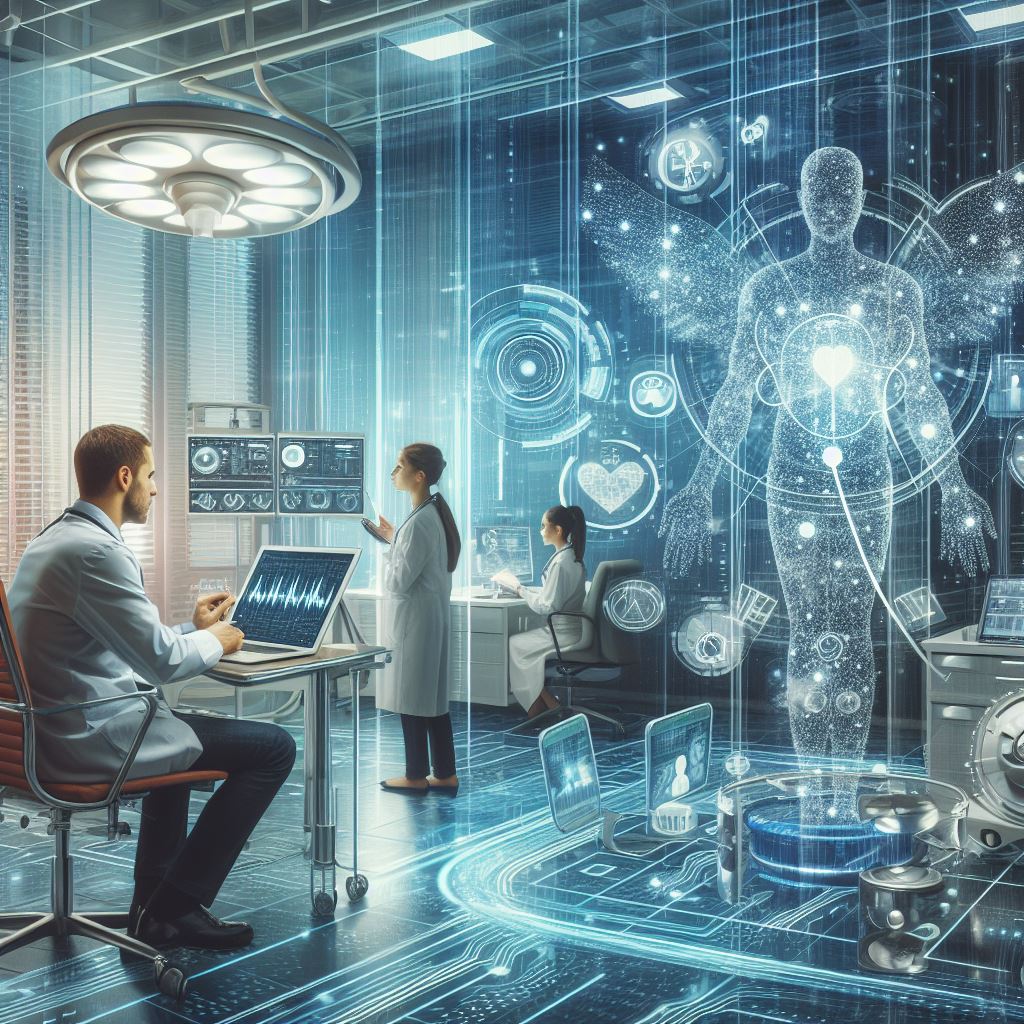Future of technology in healthcare
Technology has revolutionized various aspects of our lives, and healthcare is no exception. In recent years, we have witnessed incredible advancements in medical technology that have transformed the way healthcare is delivered. From cutting-edge diagnostic tools to telemedicine services, technology has played a pivotal role in enhancing patient care and improving outcomes.
As we continue to progress into the future, the role of technology in healthcare is only expected to expand. With the potential to streamline processes, improve efficiency, and empower patients, healthcare tech innovations hold great promise for revolutionizing the field. Let’s explore some of the key advancements and their potential impact on the future of healthcare.
Healthcare tech innovations
1. Artificial Intelligence and Machine Learning
Artificial intelligence (AI) and machine learning (ML) have garnered considerable attention in the healthcare industry. These technologies have the ability to analyze vast amounts of data, identify patterns, and make predictions that can assist healthcare professionals in making informed decisions.
AI-powered algorithms can be used for various purposes, such as diagnosing diseases, personalizing treatment plans, and predicting potential complications. With the help of AI, healthcare providers can enhance accuracy, reduce errors, and optimize patient care.
2. Telehealth and Remote Monitoring
The advent of telehealth technology has transformed the way healthcare services are delivered. Through telehealth platforms, patients can now consult with healthcare professionals remotely, eliminating the need for in-person visits for routine check-ups or minor ailments.
Additionally, remote monitoring devices enable healthcare providers to keep track of patients’ vital signs, symptoms, and overall health condition without the need for frequent hospital visits. This technology is particularly beneficial for individuals with chronic conditions or those residing in remote areas with limited access to healthcare facilities.
3. Electronic Health Records
Gone are the days of paper-based medical records. Electronic health records (EHRs) have significantly improved patient care by centralizing medical information and making it easily accessible to healthcare professionals.
EHRs enable healthcare providers to access patient records instantaneously, make accurate diagnoses, and coordinate care seamlessly. Furthermore, electronic records reduce the risk of errors and promote better communication among healthcare teams, ensuring continuity of care and improving patient safety.
4. Wearable Devices and Remote Monitoring
The rise of wearable devices, such as fitness trackers and smartwatches, has provided individuals with the means to monitor their health and well-being at all times. These devices can track various parameters, including heart rate, sleep patterns, and physical activity levels.
By collecting and analyzing this data, individuals can gain valuable insights into their overall health and make informed decisions to improve their well-being. Additionally, this information can be shared with healthcare professionals, allowing for personalized care and early intervention when necessary.
5. Robotics and Automation
Robotic technology and automation have made significant strides in the healthcare industry, particularly in surgical procedures. Robotic-assisted surgeries offer greater precision, smaller incisions, reduced blood loss, and faster recovery times compared to traditional surgical methods.
Automation systems, such as medication dispensing robots and robotic exoskeletons, have also improved efficiency in healthcare settings. These technologies minimize errors, enhance workflow, and free up healthcare professionals’ time to focus on delivering quality patient care.
6. Blockchain Technology
Blockchain technology, most commonly associated with cryptocurrencies, is gaining traction in the healthcare sector. Its decentralized and secure nature makes it an ideal platform for maintaining health records, ensuring data integrity, and facilitating secure sharing of information.
With blockchain, patients have greater control over their healthcare data, ensuring privacy and security. Additionally, healthcare providers can access accurate medical information quickly, enabling more efficient care delivery.
The potential of technology in healthcare
The future of healthcare holds immense possibilities with the continued integration of technology. These innovations have the potential to address some of the most pressing challenges in healthcare, including accessibility, affordability, and quality of care.
By leveraging technology, healthcare can become more patient-centric, empowering individuals to actively participate in their own healthcare journey. From personalized medicine and targeted therapies to remote patient monitoring and virtual care, technology opens up new avenues for improved healthcare delivery.
However, it’s important to note that while technology brings numerous benefits, it also presents challenges. Ethical considerations, privacy concerns, and the need for skilled professionals to navigate and interpret technology-based insights are some of the factors that need to be addressed to ensure successful implementation and utilization of healthcare technology.
The future is bright
As we look ahead, the role of technology in revolutionizing healthcare is undeniable. The advancements we have witnessed in recent years are just the tip of the iceberg, and the potential for further innovation is vast.
With ongoing research and development, collaboration between technology companies and healthcare providers, and a commitment to addressing the societal impact of these advancements, we can strive towards a future where technology plays a central role in providing accessible, affordable, and high-quality healthcare for all.
you might also like : The Cell phone radiation effects on Human Health
